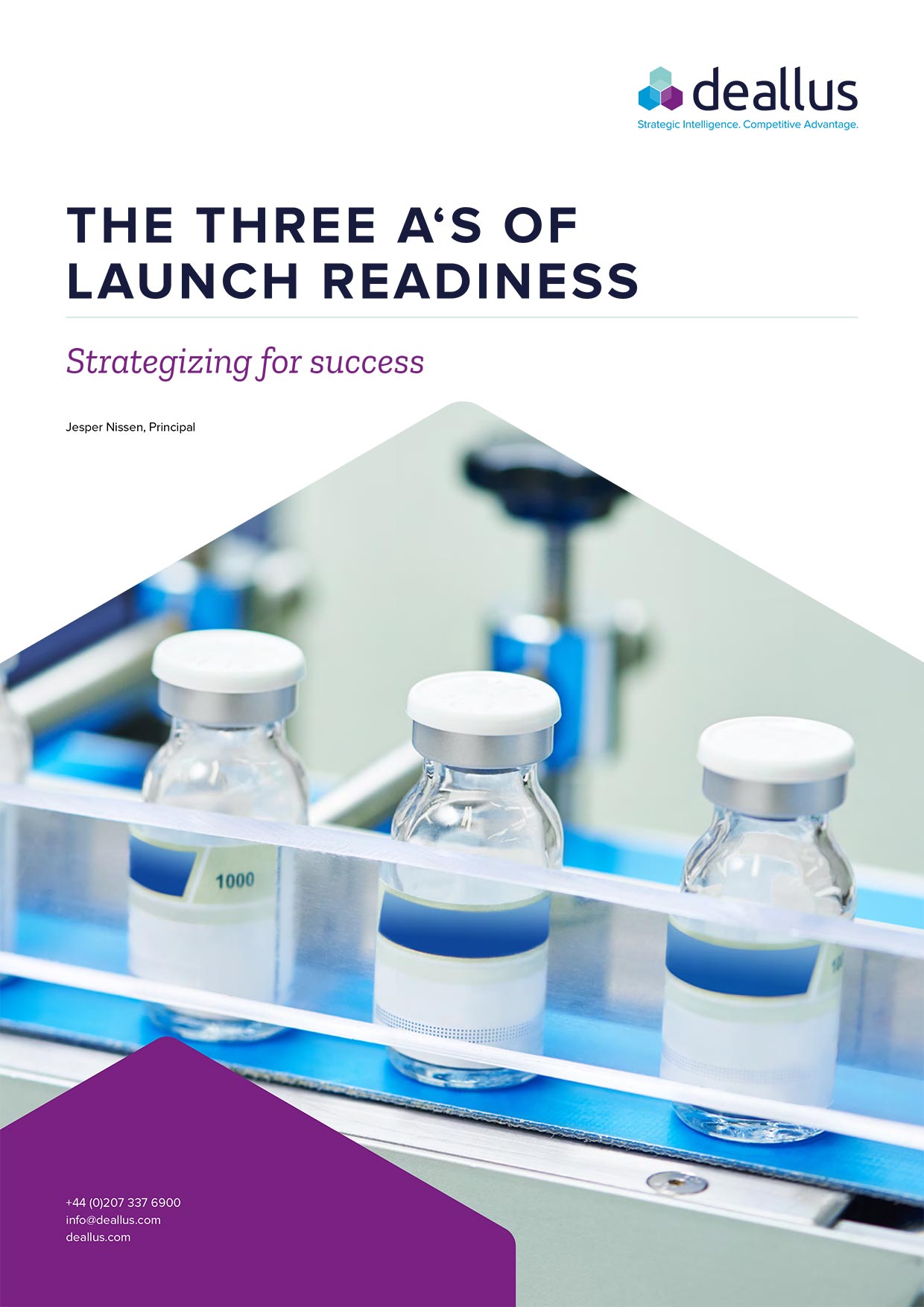The Three A’s of Launch Readiness – Strategizing for success
Jesper Nissen
It can take years to develop a drug – a launch can fail in a matter of weeks
Getting a drug from bench to launch takes an average of 12 years and $1.5 billion.1 Given responsible guardianship and the careful promotion to be expected at that level of investment, it should come as a surprise when any drug falls flat at launch.
But it doesn’t – drug launch failures happen more frequently than pharma companies care to admit. From 2009-2017, approximately 50% of drug launches failed to meet prelaunch sales expectations. Over 25% didn’t meet half their forecasted revenues.2 Of the 0.02% of candidate drugs (I in 5000) that successfully reach the market, only a third meet first-year financial expectation.3
And when launches fail, the rationalizations begin: Bad luck. Bad timetables. Unforeseen complications. Unforeseeable competition. The messaging underwhelmed the target audiences. The drug costs overwhelmed the messaging. The drug overpromised, the drug underperformed.
Any and all of these may be true. But, when each case is scrutinized individually, the evidence usually points to one of three problems: the pharma brand managers and their teams did not anticipate their own overconfidence or the moves of their competitors, they did not adapt their strategies to new market conditions as they arose, or they did not align their strategy and implementation plans across functions and geographies.
Anticipate, Adapt and Align – the three A’s of successful launch strategy. To understand and implement them require more than sending out an email meeting request and marking off a block of squares on a Gantt chart. It takes strategic vision, a holistic understanding of every vagary of the marketplace, and a forthright and ruthlessly honest assessment of both the product being launched and the competitive space it is meant to occupy.
About the author

Jesper Nissen, PhD
Jesper is a Deallus Senior Principal who has led a wide range of projects over his 6+ years at Deallus. He offers extensive experience in competitive landscape monitoring, manufacturing and diagnostics technology assessments, and global positioning and brand planning projects. His expertise covers several therapy areas including oncology, respiratory, rheumatology and rare diseases. Additionally, Jesper is leading internal and external training activities including engagements on competitive readiness best practices within the pharmaceutical industry.
You may also be interested in…
GlobalData announces acquisition of market leading competitive intelligence solutions provider Deallus
GlobalData Plc, a London-based leading data and analytics company, has completed the acquisition of Deallus from private equity firm Archimed. Deallus is a London-based market-leading competitive intelligence solutions provider focused on the global life sciences sector.
Uncertainty is here to stay
Another turbulent year is ending, marked by economic, geopolitical, and technological shifts. With six decades behind me, I embrace this uncertainty as the norm. What does this mean for corporate decisions, especially in Pharma?
Season’s Greetings
From all of us at Deallus we wish all our clients, colleagues and friends a very peaceful and prosperous festive season.
The Migraine unveiling: Bringing the invisible disability to light
Globally, headache disorders affected approximately 40% of the population, or 3.1 billion people in 2021. A migraine attack goes beyond a severe headache; it is a constellation of symptoms that may include neck pain, nausea, dizziness, visual disturbances and sensitivity to light, sounds and smell among a variety of other manifestations.





